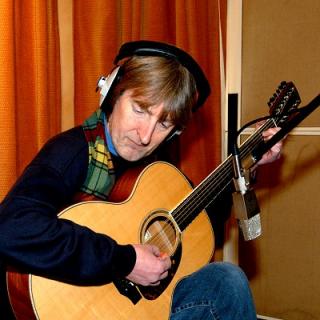
Anthony Edwin Phillips is an English musician, songwriter, producer and singer who gained prominence as the original lead guitarist of the rock band Genesis, from 1967 to 1970. He left in July 1970 and learned to play more instruments, before he began a solo career.
The Reels was an Australian rock band which formed in Dubbo, New South Wales in 1976. It disbanded in 1991, and reformed in 2007. Its 1981 song "Quasimodo's Dream" was voted one of the top 10 Australian songs of all time by a 100-member panel from Australasian Performing Right Association (APRA) in 2001. The Reels had top 10 Australian singles chart successes with covers of Herb Alpert's "This Guy's in Love with You" and Creedence Clearwater Revival's "Bad Moon Rising". Rock music historian Ian McFarlane described the group as "one of the most original and invigorating pop bands to emerge from the Australian new wave movement of the late 1970s."

Various Positions is the seventh studio album by Leonard Cohen, released in December 1984. It marked not only his turn to a modern sound and use of synthesizers, but also, after the harmonies and backing vocals from Jennifer Warnes on the previous Recent Songs (1979), an even greater contribution from Warnes, who is credited equally to Cohen as vocalist on all of the tracks.
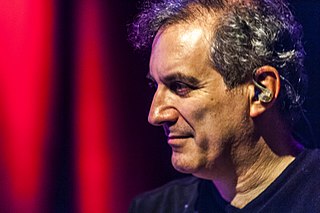
Lawrence Roger Fast is an American synthesizer player and composer. He is best known for his 1975–1987 series of synthesizer music albums (Synergy) and for his contributions to a number of popular music acts, including Peter Gabriel, Foreigner, Nektar, Bonnie Tyler, and Hall & Oates.

"Welcome to the Machine" is the second song on Pink Floyd's 1975 album Wish You Were Here. It features heavily processed vocals, layers of synthesizers, acoustic guitars as well as a wide range of tape effects. The song was written by bassist Roger Waters.

Private Parts and Pieces VI: Ivory Moon is the eleventh studio album by English multi-instrumentalist and composer Anthony Phillips. It was released in January 1986 by Passport Records in the United States and Canada as the sixth instalment in his Private Parts & Pieces album series. Ivory Moon consists entirely of piano pieces written between 1971 and 1985, with all tracks recorded in August 1985. It is Phillips's first album not to feature him as a guitarist.

1984 is the sixth studio album by English musician and composer Anthony Phillips, released in June 1981 on RCA Records. The album marks a change in musical style for Phillips as it is synthesiser-oriented compared to most of his previous albums which focused on more folk and acoustic music. After the music had been recorded, Phillips named the album after George Orwell's dystopian novel Nineteen Eighty-Four (1949).
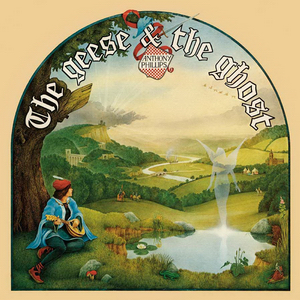
The Geese & the Ghost is the first studio album by English musician and songwriter Anthony Phillips, released in March 1977 on Hit & Run Music in the United Kingdom and Passport Records in the United States. It was originally intended to be an album by Phillips and his former Genesis bandmate Mike Rutherford, but Rutherford's difficulty in devoting time to the project ended the idea. The album reached number 191 on the Billboard 200.

Wise After the Event is the second studio album by English musician and composer Anthony Phillips, released in May 1978 on Arista Records in the United Kingdom and in June 1978 on Passport Records in the United States. After promoting his previous album The Geese & the Ghost (1977), Phillips began to prepare material for a new album. It remains his only album that features himself on lead vocals on each track.

Smallcreep's Day is the first studio album by English guitarist and songwriter Mike Rutherford, released in February 1980 on Charisma Records. It was recorded in 1979 during a period of inactivity from his rock band Genesis, during which Rutherford and keyboardist Tony Banks recorded their first solo albums. The 24-minute title track is based on the 1965 novel Smallcreep's Day by Peter Currell Brown which tells the story of Mr. Smallcreep and the journey of self-discovery he takes through the assembly line of the factory he has worked in for forty years.

Sides is the fourth studio album by English musician and composer Anthony Phillips. It was released in April 1979 by Arista Records in the United Kingdom and in June 1979 on Passport Records in the United States. After completing Private Parts & Pieces (1978), an album of home recordings that Phillips had recorded years before but remained unreleased, Phillips returned to making a commercial record. The UK release saw the first 5,000 copies of Sides packaged with a Collectors Album edition of Private Parts & Pieces.
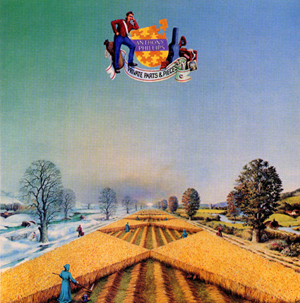
Private Parts & Pieces is the third studio album by English musician and composer Anthony Phillips. It was released in November 1978 by Passport Records in the United States, and in April 1979 by Arista Records in the United Kingdom. Unlike his previous two releases, the album is a collection of demos, out-takes, and previously unreleased material rather than an explicit attempt at a commercial album.

Private Parts & Pieces II: Back to the Pavilion is the fifth studio album by English musician and composer Anthony Phillips, released in April 1980 on Passport Records in the United States and Canada. It is the second instalment in his Private Parts & Pieces album series of previously recorded pieces that had been parts of or intended for other projects. Back to the Pavilion includes tracks recorded for Wise After the Event (1978), music during his time as a member of Genesis, and those commissioned as part of an aborted project to set Macbeth to music. It features musical contributions from Andy McCulloch and his former Genesis bandmate Mike Rutherford.
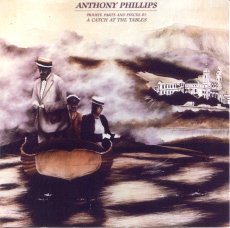
Private Parts and Pieces IV: A Catch at the Tables is the ninth studio album by English multi-instrumentalist and composer Anthony Phillips. It was released in April 1984 by Passport Records as the fourth instalment to his generic album series, Private Parts & Pieces. A release in the United Kingdom followed in 1990 by Virgin Records.

Field Day is a studio double album by English multi-instrumentalist and composer Anthony Phillips, released in October 2005 by Blueprint Records.
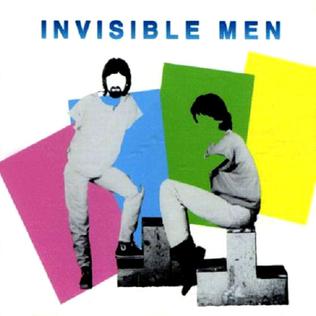
Invisible Men is the eighth studio album by English multi-instrumentalist and composer Anthony Phillips. It was released in October 1983 by Passport Records in the United States and in April 1984 by Street Tunes in the United Kingdom. After he released his Private Parts & Pieces III: Antiques, the third instalment in his generic album series, Phillips started work on his next full studio album. Phillips was pressured by his US label Passport Records to deliver more radio friendly songs, and produced Invisible Men as a collaborative effort with musician and songwriter Richard Scott.

Private Parts & Pieces III: Antiques is the seventh studio album by English multi-instrumentalist and composer Anthony Phillips. It was released in March 1982 by Passport Records in the United States and in October 1982 by RCA International in the United Kingdom as the third instalment to his Private Parts & Pieces album series. After releasing his full studio album 1984 (1981), Phillips entered a collaboration with Argentine musician Enrique Berro Garcia who he first met in 1978.

Slow Dance is a studio album by English musician and songwriter Anthony Phillips, released in September 1990 on Virgin Records. It is a 50-minute instrumental suite divided into two parts. The music was composed by Phillips and performed by himself with additional musicians.
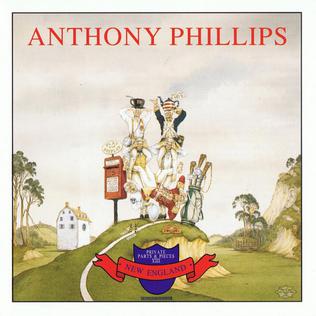
Private Parts & Pieces VIII: New England is a studio album by English multi-instrumentalist and composer Anthony Phillips. It was released in August 1992 on Venture Records as the eighth edition of his Private Parts & Pieces album series.

Enrique García-Berro Montilla was a Spanish and Catalan astrophysicist. He was a world-recognized expert in stellar astrophysics, in particular in the theory of white dwarf stars and type Ia supernovae.



















